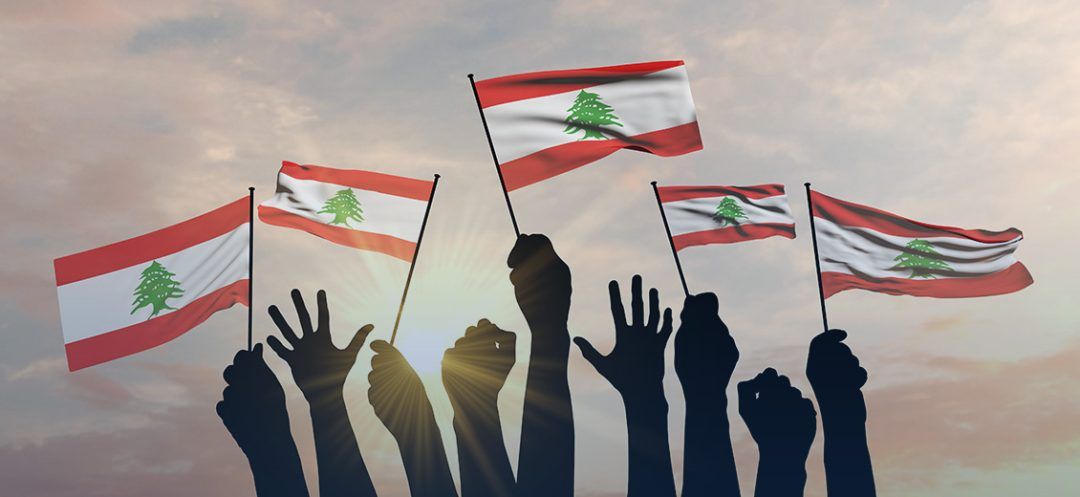
Over the past four years, Lebanon has experienced a stark contrast in living conditions, highlighting the nation's dramatic decline. The revolution that once held the promise of change has failed, leaving citizens disillusioned as the state continues to neglect their needs. The collapsed economy has plunged the country into decadence and rampant corruption. The war on Gaza has frozen any future solutions, and further divided a country with no president, no oil and gas plans, no reform plans – no plans for anything, really. The Lebanese, as a nation and state, are simply winging it at this point. Robert Fisk once wrote an acute description of Lebanon, stating, “Lebanon is like a Rolls Royce with square wheels… it has a lot that’s worthy of praise, but it doesn't run so well.”
This dichotomy is evident in the contrasting scenery across Lebanon: In the south, the ongoing conflict between Israel and Hezbollah brings devastation, while in Beirut, new expensive clubs and cafés flourish, hosting concerts for artists like Amr Diab and offering wild rooftop nightlife. This stark disparity paints a picture of national schizophrenia, where the harsh realities of war and economic collapse coexist with pockets of opulence and revelry. Or are there simply two separate Lebanons? People or journalists who tweet about the economy improving based solely on the flourishing F&B businesses or the number of new restaurants opening are misguided fools. To be more respectful, let's say they are delusional or naive in their comparison. This is not a valid way to assess the health of an economy. Our economy is barely recovering, and it’s taking too long to do so. The country’s GDP growth is 0.5%, the unemployment rate is high, inflation is high, there is a trade deficit and no clear plan of fiscal and monetary policy. I’m mentioning all of this to put the topic I’m writing about into context; namely, the new school tuition fees. The future of education affects the future of the country. This year, private schools decided to raise their tuition fees, between 50% and 120%. The cost of education in Lebanon has soared, placing a significant financial burden on families. The economic crisis, coupled with inflation, has led to skyrocketing tuition fees in private institutions. Many parents find themselves struggling to afford quality education for their children, often making tough sacrifices to do so. The tuition is in US dollars, but average salaries in Lebanon have not increased; if anything, they're even worse than in 2019. Parents find themselves working more than two jobs and a side hustle just to survive. As a result, an increasing number of students are facing disruptions in their education. Middle-class families had the option of providing a good education for their kids before the crisis because public schools in Lebanon were not an option. But many families are left with no option for next year but to pull their kids out of school, consider another school with lower tuition fees or the worst case scenario, a public school admission. The deterioration of the educational system poses significant dangers to any society. In Lebanon, the neglect of public schools and the soaring tuition fees in private institutions will have severe repercussions. Education, a cornerstone of societal progress, is becoming increasingly inaccessible to the middle class, threatening the country's future stability and growth. Not to mention that dozens of these private schools did not improve their teachers' salaries. Can you imagine the state of public school teachers?
Public schools in Lebanon have long been underfunded and poorly maintained. The government's neglect has led to deteriorating facilities, a lack of resources and underpaid teachers. As a result, public education is often perceived as substandard, pushing parents to seek private schooling for their children despite its high cost. Again, this shift places an immense financial burden on families.
Private schools, once seen as a refuge from the failing public system, have become prohibitively expensive, making quality education a luxury rather than a right. For a family with an annual income of $50,000, a significant portion of their budget – around one-fifth, or $10,000 – is dedicated to school fees and activities. This allocation leaves less room for other essential expenses, such as healthcare, housing and savings. It's one of the reasons why Lebanon’s birth rate is dropping in recent statistics, as former Minister of Interior Marwan Charbel claimed that out of every five births in Lebanon, four were Syrians and only one Lebanese.
The impact on society is profound. Middle-class families, traditionally the backbone of economic stability, are being squeezed out of educational opportunities. As access to quality education diminishes, social mobility is stifled, widening the gap between the rich and the poor. Children from less affluent families are left with fewer opportunities to succeed, perpetuating a cycle of poverty and limiting the nation's potential for innovation and growth. If this trend continues, Lebanon risks creating a society where only the wealthy can afford quality education, undermining the principles of equality and fairness. Investing in the public school system and regulating private school fees are crucial steps to ensure that every child has the opportunity to receive a good education, ultimately benefiting the entire nation.
Read more



Comments